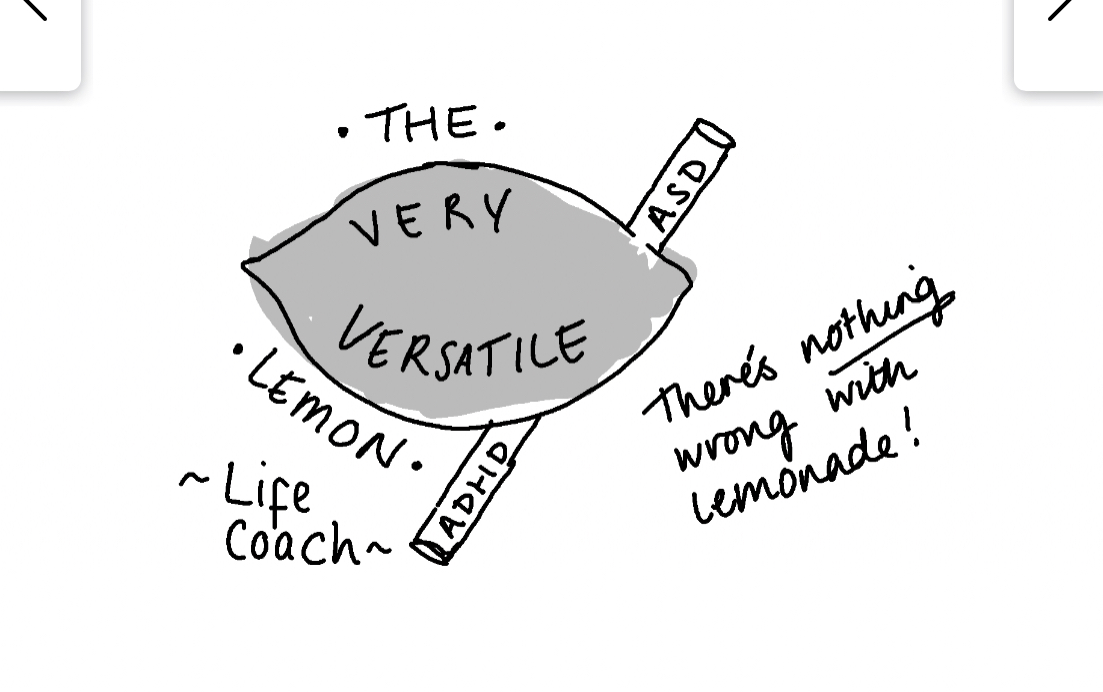This article explores the benefits of ADHD coaching, including improved time management and organisation skills, enhanced focus and attention, better self-awareness and self-regulation, increased productivity and goal achievement, improved academic or work performance, enhanced self-confidence and self-esteem, better stress management and coping strategies, improved relationships and communication skills, and long-term implications on personal growth and career development.
ADHD Coaching: Empowering Individuals with ADHD
Understanding ADHD Coaching
ADHD coaching is a complementary tool designed to assist individuals with ADHD in acquiring the necessary skills to accomplish their goals. Coaches play a crucial role in teaching study skills, executive functioning, and impulse control strategies, aiming to enhance the individual’s ability to manage their symptoms effectively. It is important for individuals to understand ADHD, set achievable goals, and advocate for themselves during the coaching process.
For example, consider a scenario where an individual with ADHD struggles with time management and often feels overwhelmed by their daily responsibilities. ADHD coaching can provide strategies to break down tasks into manageable steps, establish effective scheduling techniques, and create routines that support improved productivity and reduced stress. By addressing these practical challenges, individuals can experience a significant enhancement in their ability to navigate daily life with ADHD.
ADHD coaching aims to empower individuals with ADHD to take control of their symptoms and develop strategies to overcome challenges. This can involve learning how to manage impulsivity, improve organisational skills, and enhance communication abilities. The focus on practical, real-world techniques distinguishes ADHD coaching from traditional interventions, which may primarily address cognitive or emotional aspects of the condition. Through the structured support provided by ADHD coaching, individuals can develop practical skills and strategies that have a direct impact on their daily functioning and overall well-being.
In addition to addressing specific symptoms, ADHD coaching also aims to foster a sense of empowerment and self-efficacy in individuals with ADHD. For instance, an ADHD coach may help a client identify their strengths and develop strategies to leverage those strengths in their daily life. By doing so, individuals can build confidence and a sense of control over their symptoms, leading to improved overall well-being and functioning.
ADHD coaching is a valuable intervention that offers support to individuals with ADHD in managing their symptoms and enhancing their daily lives. Unlike traditional interventions, ADHD coaching focuses on practical ways to address everyday tasks and teaches positive behaviours, such as goal setting, prioritisation, and stress management.
Coaches play a pivotal role in helping individuals with ADHD navigate the challenges they face on a daily basis. For instance, they assist with time management, organisation, and developing strategies to overcome procrastination and impulsivity. In one-on-one sessions, coaches work closely with clients to create action plans and implement techniques that can help them stay focused and productive [3]. Additionally, ADHD coaching is not just about immediate solutions; it has long-term implications. For example, it can lead to physical and emotional improvement, intellectual growth, better social skills, and enhanced education, career, and financial planning. This is crucial for individuals with ADHD as it provides them with the tools to achieve success in various aspects of their lives.
It is important to note that ADHD coaching is not a one-size-fits-all approach and is tailored to address the specific needs and challenges faced by each individual. By providing personalised support and guidance, ADHD coaches can help individuals develop strategies to manage their symptoms and navigate daily tasks more effectively, ultimately leading to improved overall functioning and quality of life.

Benefits of ADHD Coaching
ADHD coaching provides a range of fundamental benefits that can significantly impact the lives of individuals with ADHD. It contributes to better self-awareness and self-regulation, fostering personal growth and development. The strategies employed in coaching also lead to increased productivity and goal achievement, providing individuals with practical tools to succeed in various aspects of their lives. The positive impact of ADHD coaching on academic or work performance is noteworthy, as it equips individuals with the skills necessary for success in educational and professional settings. It promotes enhanced self-confidence and self-esteem, supporting individuals in improving their self-perception and overall well-being. One of the key benefits is the improvement in focus, which can help individuals better manage their time and tasks, leading to increased productivity and efficiency in their daily lives.
Another benefit of ADHD coaching is through supporting individuals in setting and achieving meaningful goals. For instance, an individual with ADHD may struggle with prioritising tasks or organising their responsibilities. Through coaching, they can learn effective goal-setting techniques and strategies to break down larger goals into manageable steps, empowering them to make progress towards their objectives.
In addition, motivation is a critical aspect of managing ADHD symptoms, and coaching can provide the necessary support to boost individuals’ motivation levels. This can be achieved through various techniques such as positive reinforcement, personalised incentive systems, and the cultivation of a supportive environment. By enhancing motivation, individuals with ADHD can experience a renewed sense of drive and determination to overcome challenges and pursue their aspirations.
Furthermore, ADHD coaching contributes to the establishment of healthier routines. For example, an individual may struggle with time management and maintaining consistent daily habits. Coaches can work with them to develop structured routines, implement effective planning and scheduling strategies, and cultivate positive habits that support their overall well-being and success.
It is important to emphasise that the benefits of ADHD coaching extend beyond the management of symptoms to encompass holistic improvements in various aspects of individuals’ lives. By addressing the practical and behavioural challenges associated with ADHD, coaching can lead to significant enhancements in individuals’ overall quality of life and well-being, ultimately empowering them to achieve their full potential.

Techniques Used in ADHD Coaching
ADHD coaching involves the use of various practical techniques and strategies to support individuals in managing their symptoms and improving their daily lives. These techniques are tailored to address the unique challenges faced by individuals with ADHD and are designed to enhance their ability to navigate daily tasks and responsibilities.
For example, in addition to goal setting and prioritisation, ADHD coaching also utilises techniques to enhance memory and manage impulse control. For instance, individuals may be taught memory improvement strategies to help them retain important information and recall it when needed. Additionally, coaches assist individuals in developing mechanisms to manage impulsivity, enabling them to make more considered decisions and exercise greater self-control in various situations. These techniques contribute to the overall improvement of an individual’s cognitive functioning and behavioural management, ultimately leading to a better quality of life.
Moreover, ADHD coaching also encompasses techniques for developing organisational skills, planning and scheduling, problem-solving, confidence building, and relationship and communication skills. By addressing these diverse aspects, individuals can acquire a comprehensive set of tools to navigate the challenges associated with ADHD and enhance their overall functioning. These techniques are tailored to the specific needs of each individual, ensuring that the coaching process is effective and relevant to their unique circumstances.
Incorporating these practical techniques into the coaching process enables individuals to develop a comprehensive set of skills that can be applied to various aspects of their lives. By learning and implementing these strategies, individuals with ADHD can experience significant improvements in their ability to manage their symptoms, engage in daily tasks, and achieve their goals, ultimately leading to enhanced overall well-being and functioning.

Medication and Non-pharmacologic Alternatives
ADHD coaching plays a crucial role in complementing traditional treatments for ADHD by offering a comprehensive approach to managing symptoms. While medication and non-pharmacologic alternatives address the physiological aspects of the condition, ADHD coaching focuses on the practical and behavioural aspects of daily life that are often disrupted by ADHD symptoms. For example, individuals with ADHD may struggle with time management, impulse control, and prioritisation, which can impact their academic or professional performance. By targeting core impairments such as planning, organisation, and goal setting, ADHD coaches provide tailored strategies to help individuals navigate these challenges.
Moreover, the collaborative relationship between coaching and other interventions is essential in addressing the multifaceted nature of ADHD. For instance, while medication may help improve attention and impulse control, ADHD coaching can assist individuals in translating these improvements into concrete actions in their daily lives. This means that individuals not only learn how to manage their symptoms but also gain the skills to maintain focus, build motivation, and overcome specific challenges that are not solely addressed by medication or non-pharmacologic interventions. Therefore, ADHD coaching serves as a valuable complement to traditional treatments, offering a holistic approach to managing the diverse aspects of ADHD.
In addition to supporting individuals in managing their symptoms, ADHD coaching also helps them develop strategies to navigate the social and emotional aspects of living with ADHD. For example, individuals may receive guidance on building effective communication skills, managing relationships, and coping with the emotional impact of ADHD. This comprehensive approach ensures that individuals receive support in various aspects of their lives, ultimately leading to enhanced overall functioning and well-being.
Impact on Daily Life
ADHD coaching goes beyond short-term assistance, offering long-term implications that lead to physical and emotional improvement, intellectual growth, and career development. It aids individuals in developing better stress management and coping strategies, empowering them to effectively navigate the challenges they encounter in their daily lives. Moreover, coaching also contributes to the improvement of relationships and communication skills, enhancing interpersonal connections and communication for individuals with ADHD. Tailored coaching approaches address specific issues such as time management, organisation, and communication, catering to the unique needs of each individual.

Understanding ADHD Coaching Sessions
ADHD coaching sessions can be conducted in various formats and settings, providing individuals with flexibility to choose the most suitable option based on their preferences and needs. For instance, some individuals may benefit from one-on-one sessions, where they can receive personalised attention and tailored support from their coach. On the other hand, group settings may appeal to those who thrive in a collaborative environment, where they can learn from and connect with others who have similar experiences with ADHD. Additionally, the option to have coaching sessions online, by phone, via e-mail, or through text messages can be particularly beneficial for individuals with busy schedules or those who prefer the convenience and accessibility of remote sessions. This flexibility ensures that individuals can engage in coaching sessions in a manner that aligns with their lifestyle and comfort level, ultimately enhancing the overall effectiveness of the coaching process.
Moreover, ADHD coaching sessions play a complementary role in the management of ADHD symptoms alongside traditional interventions such as medication and therapy. While medication and therapy address the physiological and psychological aspects of ADHD, coaching sessions offer additional practical strategies and behavioural techniques to help individuals navigate the challenges associated with the condition. For example, a person receiving medication for ADHD may also engage in coaching sessions to develop organisational skills, improve time management, and enhance problem-solving abilities. By integrating coaching into their treatment plan, individuals can access a comprehensive approach that addresses both the symptomatic and practical aspects of ADHD, ultimately leading to better management of their condition.
Incorporating coaching sessions into the broader treatment plan for ADHD ensures that individuals receive a well-rounded and comprehensive approach to managing their symptoms. By leveraging the practical strategies and behavioural techniques provided in coaching sessions, individuals can experience significant improvements in their ability to navigate daily tasks, manage their symptoms, and achieve their goals, ultimately leading to enhanced overall functioning and well-being.
Finding the Right ADHD Coach
When searching for the right ADHD coach, it is essential to consider various factors to ensure the best fit for individual needs. One crucial aspect to consider is the coach’s education, training, and credentials. Consumers should take the time to thoroughly research potential coaches to gain an understanding of their background and expertise in working with individuals with ADHD. For instance, individuals may want to inquire about their specific training in ADHD and their experience in helping clients with the condition. This information can provide insight into the coach’s ability to address the unique challenges associated with ADHD and tailor their approach to suit the individual’s requirements.
Furthermore, the chemistry between the individual and the coach plays a vital role in the success of the coaching relationship. A strong connection and rapport between the individual and the coach can foster a supportive and collaborative environment, enhancing the effectiveness of the coaching process. For example, a coach who understands and resonates with the individual’s experiences and challenges related to ADHD may be better equipped to provide relevant guidance and support. Therefore, individuals should consider engaging in initial consultations or introductory sessions to assess the compatibility and comfort level with a potential coach before making a commitment.
Additionally, the experience of the coach in working with individuals with ADHD is a significant consideration. Experienced coaches may have encountered a diverse range of ADHD-related issues and have developed effective strategies to address them. They may also have a deeper understanding of the nuances of ADHD and its impact on various aspects of an individual’s life. Therefore, individuals should explore the coach’s track record and seek testimonials or references to gauge the coach’s effectiveness in supporting individuals with ADHD. By considering these factors, individuals can make informed decisions and select an ADHD coach who can provide the tailored support needed to address their unique challenges and goals. [4]
It is important to note that the process of selecting an ADHD coach requires careful consideration and research to ensure that individuals find the best match for their specific needs. By thoroughly evaluating the coach’s education, training, experience, and compatibility, individuals can make informed decisions and engage in a coaching relationship that is effective, supportive, and tailored to their unique circumstances.

Conclusion
In conclusion, ADHD coaching plays a pivotal role in empowering individuals with ADHD, offering a wide range of benefits that significantly impact their daily lives and long-term development. Individuals are encouraged to consider the potential of ADHD coaching as a valuable support in their treatment routine.
Questions (FAQs)
- What are the specific benefits of ADHD coaching for individuals? ADHD coaching offers specific benefits including improved time management, enhanced focus and attention, better self-awareness and self-regulation, increased productivity and goal achievement, improved academic or work performance, and enhanced self-confidence and self-esteem.
- How does ADHD coaching help in improving time management and organisation skills? ADHD coaching significantly improves time management and organisation skills, providing essential support for individuals with ADHD to effectively navigate daily tasks.
- What role does ADHD coaching play in enhancing focus and attention for people with ADHD? Coaching techniques are tailored to enhance focus and attention, addressing key challenges faced by individuals with ADHD.
- How can ADHD coaching contribute to better self-awareness and self-regulation? ADHD coaching contributes to better self-awareness and self-regulation, fostering personal growth and development.
- In what ways does ADHD coaching lead to increased productivity and goal achievement? The strategies employed in ADHD coaching lead to increased productivity and goal achievement, providing individuals with practical tools to succeed in various aspects of their lives.
- How does ADHD coaching contribute to improved academic or work performance? ADHD coaching has a positive impact on academic or work performance, equipping individuals with the skills necessary for success in educational and professional settings.
- What strategies are commonly used in ADHD coaching to enhance self-confidence and self-esteem? ADHD coaching promotes enhanced self-confidence and self-esteem, supporting individuals in improving their self-perception and overall well-being.
- How does ADHD coaching assist in better stress management and coping strategies? ADHD coaching aids individuals in developing better stress management and coping strategies, empowering them to effectively navigate the challenges they encounter in their daily lives.
- What impact does ADHD coaching have on improving relationships and communication skills? ADHD coaching contributes to the improvement of relationships and communication skills, enhancing interpersonal connections and communication for individuals with ADHD.
- Is ADHD coaching suitable for individuals of all ages, and how does it cater to different needs? ADHD coaching is suitable for individuals of all ages and is tailored to meet the unique needs of each individual, offering comprehensive support and development.
- What is ADHD coaching and how does it differ from traditional interventions? ADHD coaching is a supportive intervention that focuses on practical ways to deal with everyday tasks and teaches positive behaviours, such as goal setting and stress management, to help individuals with ADHD manage their symptoms and improve their daily lives.
- How do ADHD coaches help individuals with ADHD manage their symptoms and improve their daily lives? ADHD coaches help manage and control behaviour, offering strategies to overcome daily life circumstances and translating abstract goals into concrete actions, leading to physical and emotional improvement, intellectual growth, better social skills, and enhanced education, career, and financial planning.
- What are the specific techniques used in ADHD coaching to support individuals with ADHD? Techniques used in ADHD coaching include goal setting, prioritisation, motivation, organisational skills, planning and scheduling, problem-solving, confidence building, and relationship and communication skills, as well as specific methods to address everyday tasks and behaviours.
- What are the fundamental benefits of ADHD coaching for individuals with ADHD? ADHD coaching offers benefits such as improved focus, goal setting, motivation, and the formation of healthier routines, leading to positive changes in individuals’ lives.
- How does ADHD coaching complement medication and non-pharmacologic alternatives in treating ADHD? ADHD coaching complements traditional treatments by targeting core impairments of ADHD and providing a comprehensive approach to managing symptoms, working with clients to address specific needs and personal goals.
- What are the different ways in which ADHD coaching sessions can be conducted? ADHD coaching sessions can be conducted in various formats and settings, including one-on-one, in a group setting, in person, online, by phone, by e-mail, or by text message, providing flexibility to cater to individual preferences and needs.
- How can individuals find the right ADHD coach and what factors should be considered in the selection process? Consumers should thoroughly research potential coaches’ education, training, and credentials, ensuring that they find a coach with the right experience and approach to meet their needs, considering factors such as chemistry and experience.
- What are the typical session durations and frequency for ADHD coaching, and how do they change over time? ADHD coaching sessions can have varying durations and frequency, typically conducted weekly for the first three to six months, and then adjusted based on the individual’s progress and needs.
Discover the Benefits of Autism Coaching: Enhance social skills, communication, and overall well-being with tailored strategies and techniques, all whilst providing guidance and emotional support for individuals and families navigating the challenges of autism.
Understanding Autism Coaching
Autism coaching is a valuable resource that offers a unique combination of knowledgeable advisory support and emotional guidance for individuals with Autism Spectrum Disorder (ASD) and their families. This form of coaching provides tailored assistance to address the specific needs and challenges associated with ASD, acknowledging the diverse range of characteristics within the spectrum. Understanding the individual support requirements within the autism spectrum plays a pivotal role in formulating effective coaching strategies and support systems.
For instance, a transition expertise coach might work with a young adult with ASD to navigate the challenges of transitioning from high school to college or the workforce. This may involve helping the individual develop independent living skills, time management techniques, and strategies for coping with sensory sensitivities in a new environment. By understanding the specific needs of the individual, the transition coach can provide valuable guidance and support to ensure a successful transition process.
Additionally, parents of children with ASD may seek support from coaches who specialise in early childhood interventions. These coaches can provide strategies for managing challenging behaviours, creating structured routines, and fostering communication skills tailored to the unique needs of the child. This personalised approach to coaching allows families to receive targeted support that aligns with their child’s developmental stage and individual characteristics within the autism spectrum. The availability of diverse types of autism coaches and experts enables individuals and families to access specialised support that caters to their specific requirements, contributing to positive outcomes and improved quality of life.
Benefits of Coaching for Individuals with Autism
Coaching plays a pivotal role in enhancing the lives of individuals with Autism Spectrum Disorder (ASD) by offering a wide array of benefits tailored to their unique needs. One of the key advantages of coaching for individuals with ASD is the noticeable improvement in social skills. Through targeted coaching strategies, individuals can develop essential social interaction skills, such as initiating and maintaining conversations, understanding social cues, and building meaningful relationships. For example, an individual with autism who struggled with social engagement and making friends might benefit significantly from coaching sessions that focus on social skills development, leading to improved social interactions and a sense of belonging within their community.
Moreover, coaching has been instrumental in addressing communication challenges commonly experienced by individuals with autism. By employing specific techniques and interventions, coaches can help individuals with ASD enhance their verbal and non-verbal communication skills. For instance, through the use of visual supports, social stories, and role-playing exercises, individuals can learn to express their needs, understand the perspectives of others, and effectively engage in various communication settings. This enhanced communication ability not only fosters better relationships with peers, family members, and educators but also boosts self-confidence and reduces frustration for individuals with autism.
In addition to improvements in social skills and communication, coaching has proven to be invaluable in aiding individuals with ASD in managing daily life tasks and routines. With the support and guidance of a coach, individuals can develop essential life skills, such as time management, organisation, and emotional regulation. These skills are crucial for navigating daily activities, academic responsibilities, and transitioning into adulthood. For example, a young adult with autism who struggled with managing daily routines and responsibilities might benefit from coaching sessions that focus on creating personalised strategies and routines to enhance their independence and overall quality of life. These success stories highlight how coaching can be a transformative and empowering resource for individuals with ASD, helping them thrive in various aspects of their lives.
Strategies and Techniques Used in Autism Coaching
Autism coaching employs a variety of strategies and techniques designed to address the diverse needs of individuals within the autism spectrum. One such technique is the use of visual aids, which can help individuals with autism better understand social cues and communication, aiding in the development of essential social skills. For example, a coach may use visual schedules or social stories to assist individuals in understanding and navigating social situations, thus enhancing their social interactions and relationships.
Moreover, cognitive and behavioural approaches are customised to suit the individual needs of each client. For instance, a coaching session may involve cognitive behavioural therapy techniques to help individuals with autism manage anxiety or sensory sensitivities in social environments, thus empowering them to engage more comfortably in social interactions and activities. By tailoring these strategies to the specific challenges and strengths of each individual, coaching aims to foster a supportive and conducive environment for personal growth and skill development. This individualised approach is crucial in ensuring that coaching methods are effective and impactful for each person with autism.

Support for Individuals and Families
Autism coaching is more than just a service; it’s a lifeline for individuals and families navigating the complexities of Autism Spectrum Disorder (ASD). Coaches serve as knowledgeable advisors and emotional support providers, guiding autistic individuals and their families through the unique challenges they face. For example, a young adult with ASD might struggle with executive functioning skills, impacting their ability to manage daily tasks and responsibilities. An autism coach can step in to offer tailored strategies and techniques, empowering the individual to develop these essential life skills and achieve a sense of independence.
Furthermore, parents and guardians of autistic individuals often experience significant emotional stress and uncertainty about how best to support their loved ones. Autism coaches play a pivotal role in providing guidance and support to families, offering practical strategies for managing the emotional complexities associated with caring for an autistic child or adult. By working with a coach, parents and guardians can gain valuable insights and coping mechanisms, ultimately reducing stress and enhancing their ability to provide effective support to their loved ones with autism. Through this holistic approach, coaching serves as a vital source of support and intervention for both individuals with autism and their families, fostering a more positive and supportive environment for all involved.
Accessing Autism Coaching and Mentoring Services
When seeking autism coaching and mentoring services, it’s essential to explore the diverse options available to cater to individual preferences and needs. These options typically include online, telephone, and face-to-face sessions, offering flexibility and accessibility for those in need of support.
For instance, individuals can opt for online sessions, which can be particularly beneficial for those who prefer the comfort and convenience of receiving coaching from their own homes. On the other hand, face-to-face sessions may be preferred by individuals who thrive in a more immersive and interpersonal learning environment. Moreover, telephone sessions can provide a middle ground for those who value real-time communication but require flexibility in scheduling. By offering these varied options, autism coaching and mentoring services aim to ensure that individuals can access support in a way that best suits their unique preferences and circumstances.
Furthermore, it’s important to consider the financial aspect of accessing coaching and mentoring services. While some sessions may be available for a fee, there are potential funding options to make these services more accessible. For example, exploring the possibility of coverage through health insurance or seeking out organisations that offer sliding scale fees can help individuals access the valuable support they need. By addressing the cost considerations and providing potential funding avenues, coaching and mentoring services strive to remove barriers and make support readily available to those seeking assistance in managing the challenges associated with autism.

Conclusion
In summary, autism coaching offers a myriad of benefits to individuals with Autism Spectrum Disorder (ASD) and their families. The positive impact of coaching extends to improved social skills, enhanced communication abilities, and effective management of daily life tasks. For instance, a young adult with ASD might struggle with social interactions and face difficulties in maintaining relationships. Through coaching, they can learn specific strategies to improve their social skills, such as understanding non-verbal cues and initiating conversations, leading to more positive social experiences.
Additionally, coaching provides a platform for individuals to develop effective communication skills tailored to their unique needs. For example, a child with ASD may have challenges in expressing their emotions and needs. Through coaching, they can learn communication techniques, such as visual supports or social stories, to articulate their feelings and navigate social situations more confidently.
Moreover, the impact of coaching on the overall well-being of individuals with ASD cannot be understated. By providing support and guidance, coaches empower individuals to manage daily life tasks and routines effectively, fostering a sense of independence and self-efficacy. For instance, a teenager with ASD may struggle with managing their daily routines and responsibilities. Coaching can equip them with organisational strategies and time management skills, enabling them to navigate their daily tasks with greater ease and confidence, ultimately leading to a more fulfilling and autonomous life.
In conclusion, the role of autism coaching is pivotal in facilitating positive outcomes for individuals with ASD, spanning from improved social skills and communication to effective daily life management. It is an invaluable resource that empowers individuals and families to navigate the unique challenges associated with autism and work towards a more fulfilling and enriched life. Therefore, it is crucial for individuals and families to consider the potential benefits of autism coaching as a supportive and empowering intervention.
Frequently Asked Questions (FAQs)
- How can coaching benefit individuals with Autism Spectrum Disorder (ASD)? Coaching offers significant benefits for individuals with ASD, including improvements in social skills, communication, and daily life management.
- What are some specific strategies and techniques used in coaching individuals with autism? Specific strategies and techniques used in coaching individuals with autism are tailored to address cognitive and behavioural challenges while considering the unique strengths of each client.
- How does coaching help with the development of social skills in individuals with autism? Coaching plays a crucial role in providing guidance and emotional support for autistic individuals, helping them navigate challenges and build essential skills necessary for daily life management and overall well-being.
- In what ways can coaching assist with communication challenges for individuals with autism? Coaching provides tailored strategies and techniques to address the diverse challenges within the autism spectrum, including communication challenges, empowering individuals to navigate daily life effectively.
- What role does coaching play in helping individuals with autism manage daily life tasks and routines? Autism coaching offers support in managing daily life tasks and routines, providing valuable guidance and emotional support for individuals and families.
- Can you provide success stories or testimonials from individuals who have received coaching for autism? Individuals have reported rapid improvements in academic performance and executive functioning skills, as well as enhanced motivation and overall well-being through tailored coaching approaches.
- What is the role of autism coaches in providing support and intervention for individuals with autism? Autism coaches provide guidance and emotional support for autistic individuals and their families, helping them navigate challenges and build essential skills necessary for daily life management and overall well-being.
- How can parents and guardians benefit from working with autism coaches? Coaching can assist parents and guardians in managing their emotions related to caring for an autistic child or adult, providing valuable support and reducing stress.
- What are the different types of autism coaches and experts available to provide support? Various types of autism coaches and experts are available, including those focusing on early childhood interventions, school-related support, transition expertise, and support for parents and legal advice.
- How can individuals access autism coaching and mentoring services, and what are the associated costs? Individuals can access autism coaching and mentoring services through various channels, including online, telephone, and face-to-face sessions, with considerations for the cost of coaching and potential funding options to make coaching more accessible to those in need [3].
Understanding ADHD in Young Adults
ADHD, or Attention-Deficit/Hyperactivity Disorder, is a neurodevelopmental disorder characterised by symptoms of inattention, hyperactivity, and impulsivity. While often associated with children, ADHD can persist into adulthood. Managing ADHD in young adults can include tackling common symptoms such as trouble focusing, impulsivity, lack of organisation, poor time management, restlessness, and mood swings. It is important to note that ADHD can manifest in different ways, and there are three main types: hyperactive-impulsive, inattentive, and combined. Some individuals with ADHD may be considered “high functioning,” meaning they have developed coping skills to mask their symptoms.
Diagnosing ADHD in young adults involves a comprehensive evaluation that includes physical exams, medical history, and psychological tests. It is essential to recognise that ADHD can significantly impact various aspects of a young adult’s life, including their job, school, and social relationships. Understanding and addressing ADHD in young adults is crucial for their overall well-being and success.
Managing ADHD in young adults can present unique challenges compared to children or older adults with the disorder. Young adults with ADHD often face the task of transitioning from education to the workforce, which can be particularly challenging due to the demands of a new environment and increased responsibilities. They may struggle with maintaining attention and focus during long work hours, staying organized, and managing their time effectively. Additionally, the social aspects of the workplace can be challenging for young adults with ADHD, as they may struggle with impulsivity and have difficulty managing interpersonal relationships.
Challenges Faced by Young Adults with ADHD
Young adults with ADHD often face unique challenges that can impact their daily lives. These challenges may include difficulties with money management, legal troubles, job instability, substance use, relationship problems, and mental health issues. It is important to recognize that ADHD frequently co-occurs with other mental disorders, such as anxiety, mood, and substance use disorders. The presence of these comorbid conditions can further complicate the challenges faced by young adults with ADHD.
For example, young adults with ADHD may struggle with money management due to impulsive spending habits and difficulties in organizing finances. They may have trouble sticking to a budget, saving money, and paying bills on time. This can lead to financial stress and instability. Additionally, young adults with ADHD may be more susceptible to legal troubles, as impulsivity and poor decision-making can lead to engaging in risky behaviors or breaking the law. It is important for young adults with ADHD to be aware of these challenges and seek support and strategies to manage them effectively.
Benefits of ADHD Coaching
ADHD coaching can provide significant benefits for managing ADHD for young adults. ADHD coaches specialize in working with individuals with ADHD and can help young adults improve their organizational skills, time management, and overall daily functioning. They provide support and guidance, helping young adults navigate challenges and develop strategies to achieve their goals. ADHD coaching can be a valuable tool in empowering young adults to better manage their ADHD symptoms and lead fulfilling lives.
For example, an ADHD coach can assist a young adult manage their ADHD through developing effective organisational systems tailored to their specific needs. They can help create routines, establish priorities, and break down tasks into manageable steps. Additionally, an ADHD coach can provide accountability and support, helping the young adult stay focused and motivated towards their goals. The personalised guidance and strategies offered by an ADHD coach can greatly enhance a young adult’s ability to overcome challenges and achieve success in various areas of their life.
Strategies for Managing ADHD Symptoms
Practical strategies can assist young adults in managing their ADHD symptoms effectively. These strategies include making lists, using visual reminders, keeping a clean and organized environment, being prepared, and seeking accountability from loved ones. Regular exercise, healthy eating, sufficient sleep, and practicing time management and organisation can also contribute to managing ADHD symptoms. It is essential for young adults to explore and experiment with strategies that work best for them, as individual experiences with ADHD may vary.
One strategy that can be particularly helpful for young adults with ADHD is the use of technology. There are many apps and tools available that can assist with organisation, time management, and task prioritization. For example, individuals can use smartphone apps that provide reminders and notifications for important tasks and deadlines. They can also utilise digital calendars and to-do lists to keep track of appointments and responsibilities. These technological tools can serve as visual reminders and help young adults with ADHD stay organised and on top of their tasks.
Support Resources
Young adults with ADHD have access to various support resources that can assist them in managing their condition. Mental health services, treatment programs, and support groups are available to provide guidance, understanding, and a sense of community. Additionally, vocational counselling and educational assistance can help young adults with ADHD navigate academic and career challenges. Some individuals may also choose to participate in clinical trials, contributing to ongoing research on ADHD and accessing additional support. Seeking support from these resources can be instrumental in helping young adults with ADHD thrive.
For example, support groups specifically designed for young adults with ADHD can provide a safe space for individuals to share their experiences, learn from others, and receive encouragement and support. These groups often offer practical tips and strategies for managing ADHD symptoms and can help young adults feel less isolated in their struggles. Mental health services, such as therapy and counseling, can also provide young adults with ADHD with a space to explore their emotions, develop coping strategies, and address any co-occurring mental health concerns.
Treatment
Treatment options for young adults with ADHD typically involve a combination of medication and therapy. Medications, such as stimulants or non-stimulants, can be prescribed to help manage ADHD symptoms. Finding the right medication and dosage may require some time and adjustment. Therapy, such as cognitive-behavioral therapy, can be beneficial in improving organisational skills and time management. It is essential for young adults with ADHD to work closely with healthcare professionals to determine the most effective treatment plan for their specific needs.
In addition to medication and therapy, young adults with ADHD can also explore alternative treatment options. These may include mindfulness practices, such as meditation and yoga, which can help improve focus and reduce impulsivity. Additionally, incorporating regular exercise into their routine can have a positive impact on ADHD symptoms, as physical activity has been shown to improve attention and cognitive function. It is important for young adults with ADHD to discuss these treatment options with their healthcare provider to ensure they are engaging in safe and evidence-based practices.
Conclusion
ADHD in young adults is a complex condition that can significantly impact various aspects of their lives. Understanding the characteristics and challenges of ADHD in young adults is crucial for providing appropriate support. ADHD coaching offers valuable assistance in improving organisational skills and daily functioning. Implementing practical strategies and seeking support resources can help young adults with ADHD effectively manage their symptoms. Treatment options, such as medication and therapy, can play a vital role in supporting young adults with ADHD on their journey to better management and improved quality of life. By recognising the unique needs of young adults with ADHD and providing the necessary support and resources, we can help them thrive and reach their full potential.
Capturing my journey to where I am today all started with an idea… The Very Versatile Lemon Coaching. Coming to me in the middle of the night, the dream of a name was born. I frantically awoke to jot the idea down, terrified it would escape me otherwise. So, I had the name… that much was easy. The image was the hard part. I couldn’t draw lemons, that much was obvious! Grenades and fish-like images flowed out of my pencil, night after night. Luckily these drawings helped me to fine-tune the design, but I needed a better creator than myself for the infamous LEMON. Cue… Smashing Logo. My hyperfocus mixed with web-designing led me to this incredible site, and hurrah… my logo was designed, created and locked in within the hour! With ADHD and ASD comes incredible feats, dreams are possible, if only you put your mind to it.





